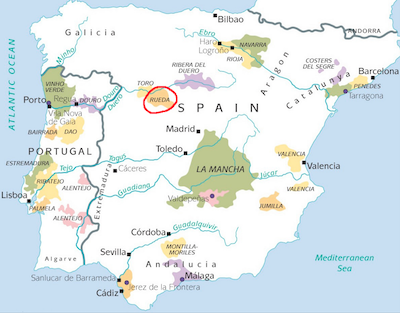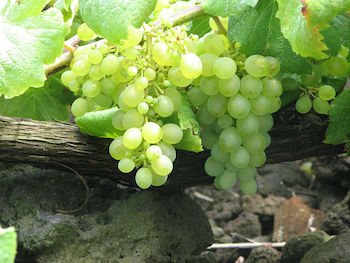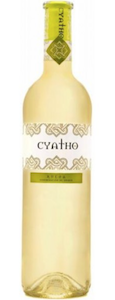
Summertime And The Living Is Verdeezy
This just in: In case you haven't noticed, summer is not gone just yet. The days are still long, and the nights are still lazy, filled with the sweet sound of air conditioners blasting, weekend retreats out of the city, to the beach or the lake are still a must, and watermelon sales are still on the rise. But if that isn't enough evidence to soothe your August soul, the real proof that we are still in the midst of the best season of all, is the amount of rosé that continues to fly off the shelves. But what if—gasp—you've somehow grown tired of the pink stuff? After all, it's probably been your main go-to ever since April, when the cherry blossoms, well, blossomed, and the temperature started to rise. You've lapped it up at every picnic, rooftop bbq, and after-work happy hour since. And now, three months later, you find yourself hankering for another option. Well, I know just the thing. Can you keep a secret? Can you change colors, and reach for the gold? And no, I'm not talking about buttery, or overly oaked Char, or cut grass meets cat piss Marlbourough Sauv Blanc. I'm not even speaking of brassy Pinot Grigio, or gulp, green apple-y Gruner. But what I am getting to is this...hang on. Wait for it. Get your wine key ready...Verdejo. Yes, Spain's answer to the inquisition. No. just kidding on that one. But seriously, Verdejo should be in the running as the perfect summer wine. At least it has to be in the conversation. Even just saying it makes you feel like you are laying in a hammock with the gentle trade winds blowing, ruffling your light cotton shirt, if, that is, you are even bothering to wear any kind of shirt at all. Here, let's all say it together: Ver-dej-o. Now, don't you feel better? And we haven't even tasted it yet.
Origins
 Having originated in North Africa, Verdejo, as that aforementioned delightful name suggests, in reality is a grape varietal long associated with Spain. To be specific, the Rueda region, which is located northeast of Madrid, and has long been known to produce white wines using it as the main component. According to the Denominacion de Origen (DO), which is the controlling body that enforces the regulations set to ensure the origin, style, and quality of its wines, the guidelines stipulate that for a wine to officially be called a "Rueda," it must contain a minimum of 50% Verdejo grapes. Wines labeled "Rueda Verdejo" must contain a minimum of 85% Verdejo, though usually, most wines from there are comprised with 100% of the varietal. And for what it's worth, today, there are over 1,500 growers and 62 wineries in Rueda producing wines made from Verdejo. So there's that. Those numbers are nothing to Verdeeze at. All those winemakers surely have an inkling that they must be onto something. Refreshing that is.
Having originated in North Africa, Verdejo, as that aforementioned delightful name suggests, in reality is a grape varietal long associated with Spain. To be specific, the Rueda region, which is located northeast of Madrid, and has long been known to produce white wines using it as the main component. According to the Denominacion de Origen (DO), which is the controlling body that enforces the regulations set to ensure the origin, style, and quality of its wines, the guidelines stipulate that for a wine to officially be called a "Rueda," it must contain a minimum of 50% Verdejo grapes. Wines labeled "Rueda Verdejo" must contain a minimum of 85% Verdejo, though usually, most wines from there are comprised with 100% of the varietal. And for what it's worth, today, there are over 1,500 growers and 62 wineries in Rueda producing wines made from Verdejo. So there's that. Those numbers are nothing to Verdeeze at. All those winemakers surely have an inkling that they must be onto something. Refreshing that is.
Terroir
 Rueda has rocky soils rich in limestone and iron, and when you combine those two elements along with all that Spanish sunshine, what you end up with are very flavorful and full white wines rich in citrus notes, and abundant with hints of honeysuckle and even dried eucalyptus. One interesting fact to be aware of is that Verdejo grapes in Rueda are harvested at night, at a time when the cooler temperatures will prevent oxidation from occurring, and this step helps the grapes retain their natural acidity and freshness. Once the fermentation process happens (usually in stainless steel or concrete), this then underscores the brightness, and fruit-forward characteristics in the wine.
Rueda has rocky soils rich in limestone and iron, and when you combine those two elements along with all that Spanish sunshine, what you end up with are very flavorful and full white wines rich in citrus notes, and abundant with hints of honeysuckle and even dried eucalyptus. One interesting fact to be aware of is that Verdejo grapes in Rueda are harvested at night, at a time when the cooler temperatures will prevent oxidation from occurring, and this step helps the grapes retain their natural acidity and freshness. Once the fermentation process happens (usually in stainless steel or concrete), this then underscores the brightness, and fruit-forward characteristics in the wine.
 Pairings
Pairings
Based on the above profile, I'm sure that it comes as no surprise that Verdejo will pair well with just about any and all of the usual suspects that you'd think tend to go with a bright, full-bodied, dry white wine—that, of course, being shellfish, (I can practically see the dozen oysters I'm going to order to accompany my next glass of Rueda!), but also, poultry, charcuterie, cheese, salads, and what else, but another classic export from Spain, paella.
So, the next time you are at your local wine shop and are about to grab a bottle of rosé, or at a restaurant perusing the list, look for a Verdejo from Rueda, and you will walk (or stumble) home a happy camper, still glad that summer, and all those warm fuzzy memories that go with it, has not yet faded away.










